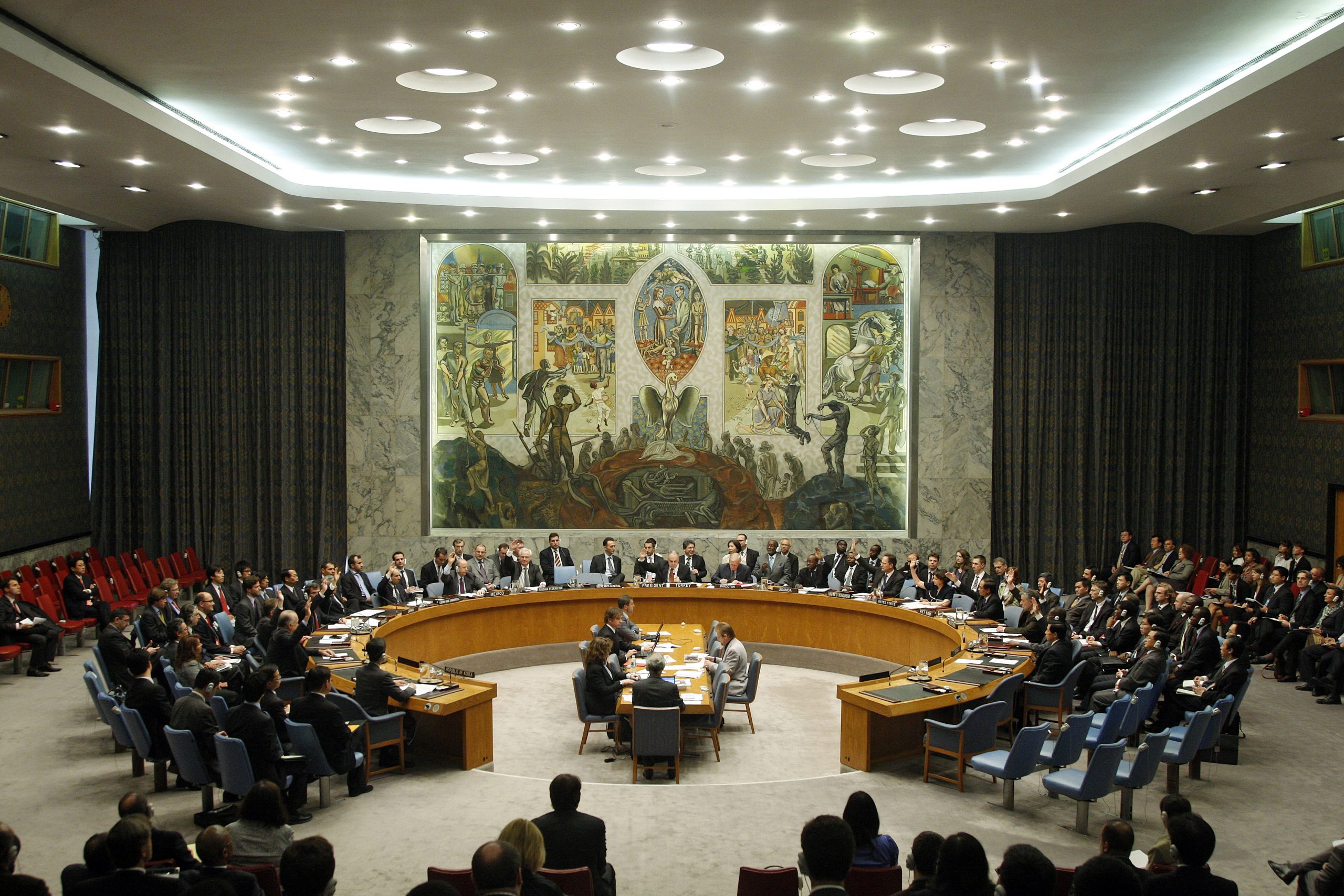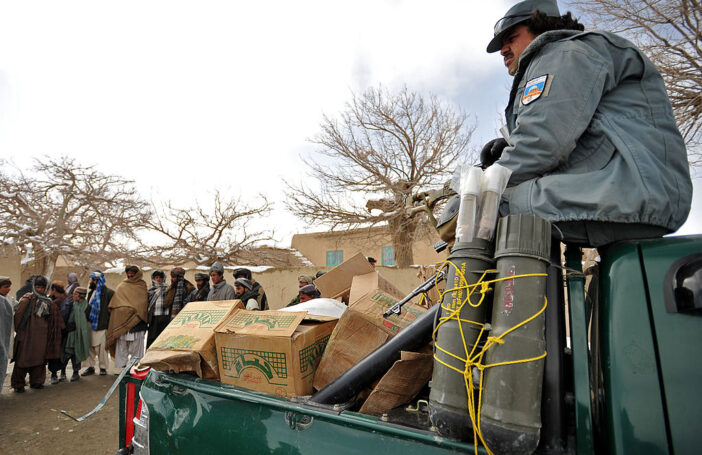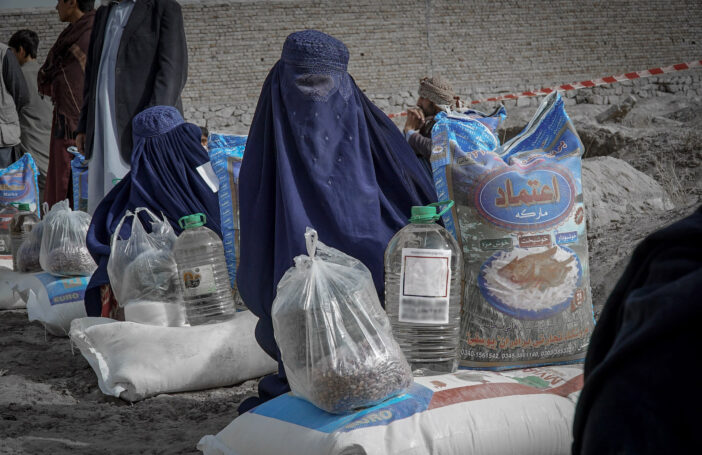Economic sanctions have assumed a prominent role in global politics since the turn of the twenty-first century. With a lack of public support for military interventions, policymakers have increasingly turned to the non-violent coercive tool of sanctions to address major crises such as Russia’s invasion of Ukraine and political violence in Venezuela.
But what effects do these popular coercive instruments have on human rights in target countries? Evidence shows that sanctions lead to increased levels of political repression by target governments.
Sender states usually justify the use of sanctions by arguing that external trade and financial restrictions will force target governments to alter their policies in line with sender demands. Target governments may face a significant decline in their capacity to rule due to restricted access to essential military and economic resources. Reduced access to these resources then undermines the government’s ability to project power. They may subsequently have less capacity to commit repression and eliminate domestic dissent to their authority.
In this scenario, sanctions-induced economic pain and shrinking resources could also decrease a target leader’s ability to provide selective inducement to their support base in return for their loyalty. Selective enticements could include tax breaks, access to scarce luxury goods, better housing and higher salaries. In the event that they no longer benefit from selective incentives, regime loyalists and other key public figures might choose to defect from the ruling coalition and join anti-regime groups.
In addition, citizens who incur the economic costs of sanctions could develop more grievances against their government. Mounting grievances stemming from dire living conditions could help anti-regime groups to recruit more supporters and mobilise against an incumbent government. According to this logic, the reduced coercive capacity of target regimes coupled with emboldened opposition should lead to less state repression and better human rights conditions overall.
But sanctions rarely operate in the way this logic suggests. The adverse economic and humanitarian effects of sanctions in target countries are well-documented. It is also unlikely that leaders in target countries like Iran, Russia and Venezuela are directly bearing the intended costs of coercion. This is largely because they use shrinking public resources in their favour to evade sanctions and keep their ruling coalitions intact, while their citizens suffer disproportionately.
Targets can also gain access to sanctioned resources through third parties that are willing to bust sanctions. Just as Yugoslavia did during the 1990s, some target regimes will even use smuggling and other black-market channels to gain access to scarce goods.
Accordingly, most target governments will continue to have enough state capacity to commit repression. As target leaders escape the costs of external pressure, there is often no discernible change in the balance of power between the incumbent leadership and opposition groups.
Sanctions can in fact inadvertently lead to more state repression in target countries. Target leaders often feel threatened by foreign pressure as they interpret sanctions as a direct threat to their political survival. They therefore resist sanctioning country demands for policy reforms to avoid looking weak in the eyes of their supporters.
Leaders targeted by sanctions also have more incentive to curtail basic human rights and democratic freedoms. The use of repressive means against citizens is one way for a regime to communicate to its support base and the broader public that it remains defiant against domestic or external challenges to its authority.
Even in cases where sanctions incite anti-regime protests and violence, target governments may respond to dissent using repressive means such as violent crackdowns on protests and political imprisonments. Some leaders might even use sanctions as a pretext to justify restrictions on human rights. In Cuba and Iran for example, leaders paint sanctions as an infringement of their sovereignty and national integrity and defend the suppression of domestic dissent under the pretence of maintaining domestic unity.
In some cases, sanctions can also contribute to the deterioration of human rights in target countries by undermining the state’s ability and willingness to monitor and screen its bureaucratic agents. Since target leaders operate with less resources under sanctions, they might change spending priorities at the expense of certain government programs. This can include budget cuts to the oversight capabilities of security, police and other bureaucratic agencies. Left unmonitored, it is more likely that security and police forces will commit human rights abuses such as torture or the use of excessive force against peaceful demonstrators.
Sanctions are often considered to be a non-violent and relatively peaceful tool. But the track record suggests that they are likely to do more harm than good when it comes to human rights conditions in target countries.
From a policy standpoint, sanctioning states should ensure that human suffering and other adverse effects of sanctions do not outweigh the intended political gains. Given the relatively low success rate of sanctions in attaining their objectives, it is even more imperative for policymakers to consider the possible human rights impact of sanctions. While sanctions might be construed as a lesser evil, it is still the policymakers’ responsibility to design sanction regimes that minimise harm to civilians and prevent long-lasting economic dislocation and political instability. In cases where sanctions have been in place for years with no desired change in target regime behaviour, policymakers should consider lifting them to minimise the sanctions-induced instability and civilian harm.
This blog was originally published on East Asia Forum.





